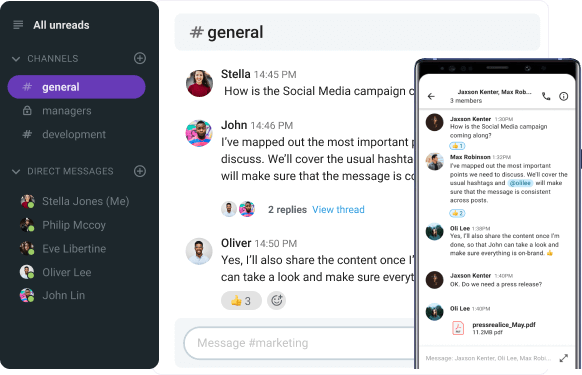Unfortunately, life can’t all be peaches and cream. From time to time, we face unpleasant situations where our intentions can be misconstrued, or even used against us.
One such type of situation is — having to ask tough questions at work.
Questions that challenge someone’s authority, or those that, for example, request additional resources, can become a source of frustration to those we pose them to.
In a business setting, this can result in sudden shifts in attitude and opinions someone has of us — often souring the relationship permanently.
There are, however, ways of going about asking sensitive questions that incur the least possible amount of “damage”.
To accomplish this, you can follow certain principles created to guide you along the way of asking a tough, but necessary question at work.
This article explains the most important of these principles, while also clearing up the confusion around the meaning of the term “tough questions”. To do this, we provide a list of several examples, for which we later provide phrasing suggestions. We should also mention that a ten-step practical guide to asking difficult questions is included within this text as well.

Table of Contents
What are tough questions at work?
What do we mean by “tough questions?”
We’ll define these as all the tricky/sensitive/difficult questions you have to ask at work that may provoke a negative reaction.
They are concerned with sensitive topics — which carry high stakes for future interactions between the person asking the question and the person being asked.
In other words, you can earn a bad rep for asking a tricky question — or have it backfire some other way, if you phrase the question in an insensitive way.

What are examples of tough questions?
To help better illustrate what we mean by tough questions, we present you with five examples:
- Asking for help;
- Asking for a raise;
- Asking for a favor;
- Asking about inappropriate behavior;
- Asking about reasons for demotion/dismissal;
🔶 Tough question example 1 — asking for help
Lisa feels like she needs more support at her new job as a junior accountant. The financial processes are complicated at her new company, and she’s anxious about making a big mistake. She can see that her supervisor is already overwhelmingly busy, so she thinks that the question she needs to ask (about additional help) might cause frustration to her supervisor.
🔶 Tough question example 2 — asking for a raise
After working as a junior software developer at the same company for a year, Derek thinks it’s about time to ask for a raise. However, he’s a bit apprehensive about asking his supervisor for it, as he thinks he’s still new to the company and not too confident about his role. Derek is afraid he might get a negative response, which would reflect poorly on his work experience.
🔶 Tough question example 3 — asking for a favor
Following an unpredictable event from private life, David, a university teacher, is in a position where he has to ask his coworker — Glen, also a university teacher — for a favor. The favor consists of David needing Glen to take over his next day’s class, even though Glen had already done this the previous week, due to similar circumstances. This makes David’s task extra difficult — he has to ask for a repeat favor while not seeming ungrateful for the previous one.
🔶 Tough question example 4 — asking about inappropriate behavior
Kyle is the company’s financial advisor, and there have been several complaints about his behavior — specifically, telling offensive jokes. June is in a tough spot. She’s the HR specialist of this company, so she has to address the issue and find out about his side of the story, but wants to do so tactfully. She has to ask a sensitive question about inappropriate behavior from this particular employee, without making Kyle feel too uncomfortable and unwilling to cooperate.
🔶 Tough question example 5 — asking about reasons for demotion/dismissal
Christine is unpleasantly surprised to find that her employer has decided to demote her, from the position of lead UX designer — back to doing more “menial” design tasks. She is unsure why this development happened, and is preparing to ask her supervisor about the reasons. She feels hurt, and this is understandably uncomfortable for her.
Why is it important to ask and answer tough questions at work?
We’ll demonstrate the importance of asking tough questions at work with a little thought exercise:
Imagine that you have a hot-tempered boss (let’s just say that many people might not have a hard time imagining this), whom you have to ask for a raise. The idea of it is daunting, so you avoid doing it.
Now imagine what it would be like if this waiting-and-despairing attitude lasted for a long time. In most cases, the inertia of daily routine in the workplace is simply too strong — leaving little chance anything would ever change without intervention on your behalf.
How would you feel in this kind of scenario? Long-term — in a year, in five years? Almost without a doubt, you’d feel miserable.
And the only way you can avoid this fate is by stepping up and getting over the fear of asking difficult questions.
The conclusion — why asking tough questions is so important: there’s no change or improvement without stepping out of your comfort zone.Asking difficult questions is a necessary means of initiating growth-directed changes.
💡 For tips that help you ask better questions in general, visit How to ask better questions at work.
Best techniques for asking tough questions at work
First, let’s define what your objective is: to ask a difficult question politely, in a way that lets you remain on good terms with the person/people you’re asking questions from.
In order to accomplish this, you can prepare by going through our step-by-step instructions, as well as examples of how to phrase sensitive questions in specific situations.
Asking tough questions: a ten-step guide
Here are practical, step-by-step instructions that can help you approach asking tough questions at work in a more deliberate manner.
These steps take you on the path from planning, getting yourself into the proper state of mind, the act of asking itself, the response you get, and finally the aftermath of the interaction.
Step #1: Have a clear picture of what you want to ask 🖼️
You should make sure you have a detailed mental picture of what you want to ask. Using your imagination, work out several possible directions the question may lead you on. Write down notes if necessary. This way, you’ll know exactly what you want to say, and what to do if the course of conversation changes. This way, you’ll limit the odds of awkwardly stumbling over words in situations you didn’t anticipate.
🔶 Example of having a clear picture:
For our example, let’s take a situation where you have to ask your coworker to stop distracting you with memes they send to your business chat app. The first step of having a clear mental picture could include mentally outlining the basic intention of the request, the tone you want to use, and the reaction you expect.
Step #2: Plan ahead 🗒️
You want to know when and how you will ask your question. When you plan ahead, you make time and space for preparation, both mental and physical. Also, you give time for the question to crystalize in your mind, and for yourself to be able to predict the kind of response you might get. Planning ahead also plays the role of alleviating some of the psychological pressure from this kind of stressful conversation.
🔶 Example of planning ahead:
Now, you pick a time and place for asking the question. In this case, you could do it in the cafeteria, during lunch break.
Step #3: Put yourself in the other person’s shoes 👢
Consider how your question may be interpreted. Do this by taking on the perspective of the person you’re asking questions to. Put yourself in their place — take some time to imagine what they might think and feel, and how they might interpret the difficult question you want to ask. This exercise helps you identify and better prepare for some of the possible points in the discussion where conflict might emerge.
🔶 Example of putting oneself in someone else’s shoes:
Ahead of asking, think of ways your colleague might feel — perhaps embarrassed, offended, disappointed, etc. Think of how to approach the situation best suited for minimizing these negative feelings.
Step #4: Get into the right state of mind 🧠
Take a few mindful moments to prepare. Maybe do a quick meditation or a breathing exercise, to help you calm your nerves and stay centered. When your mind becomes calm and focused, you’re in the right spot to ask difficult questions from a place of maturity and assuredness. Meditation also does wonders for calming intrusive and racing thoughts, so it can be a great tool for those struggling with anxiety.
🔶 Example of getting into the right state of mind:
A few minutes before starting the conversation, you could do a quick breathing exercise — taking 3 long breaths, counting to 7 for each inhale, and exhaling.

Step #5: Inform the person that the question is going to be tough ⚠️
To prepare the grounds for a civil and constructive conversation, notify the person that the question will be tough before asking them. This lets the person know what to expect, and as a result, the question won’t come as a shock. If you were to simply ask a sensitive question without preparing the person, you could provoke an instinctual, defensive response. When this happens, the course of the conversation is hard to readjust into friendlier terms.
🔶 Example of warning someone about a tough question:
You could approach your coworker by saying: “Hey, I’m about to ask you something a bit sensitive. I want you to know that I mean no offense by it.”
Step #6: Choose your words 💬
Phrase the question in a non-incendiary way. It’s one very simple, but probably the most important and effective part of the question-asking process. When you pay attention to the words you use, the likelihood is far lower that you will offend your conversation partner, or cause a big misunderstanding. Further down below in this article, you can find some exercises to help you practice phrasing tricky questions.
🔶 Example of choosing one’s words:
Think of ways to phrase your question politely. Instead of saying:
“Can you stop interrupting me with your annoying memes?”, which might be an accurate representation of what you want to say, it’s more kind and professional to say, for example:
“I’ve been finding it hard to focus these days and I think instant messages might be a part of the problem. Could you please send those memes a bit less frequently?”
Step #7: Observe non-verbal cues 🙅
During the conversation, pay attention to what the other person’s body language is signaling. The person’s posture, facial expression, where they keep their arms and legs — all reveal what they truly feel about the situation.
A few examples:
- Hands in pockets, or crossed-over in front of the chest — the person feels defensive, insecure, or they want to hide something;
- Arms on the hips — this is a signal of confrontation, or even aggressive intentions;
- When sitting, legs spread wide apart — readily taking up space is a sign of confidence;
There are many more such examples, but the main takeaway is — you can study the person’s reaction to your question through careful observation of how they adjust the position of their body.
🔶 Example of observing non-verbal cues:
Once you’ve asked your question, look at the other person’s body language. They might cross their arms in front of their chest — this is a classic sign of defensiveness. Their cheeks might get red — showing their embarrassment.
Step #8: Listen closely to the response 👂
Focus well on what the other person is saying, listen with your full attention. There’s no point in going through all this preparation, only to zone out while the other person is talking and miss out on a significant part of what they wanted to communicate. Pay close attention to what’s being said, but also the way it’s being said. How someone enunciates certain words in a sentence, or the tone they use can tell you what they find to be the most important points of the discussion, and their attitude towards them.
🔶 Example of listening closely:
What kind of words is the person using in response — are they apologizing, are they expressing annoyance, avoiding the issue?
Step #9: React appropriately 🙋♀️
No matter the response to your question, always react in a polite and professional manner. If the response is negative — making a scene is both unproductive and a potential stain on your reputation. Make a dignified retreat instead. And in case everything goes well, make sure to express gratitude and wishes for equally great collaboration in the future.
🔶 Example of an appropriate reaction:
Stay mindful of your reactions, and always be polite and professional. In both cases, if your colleague has either a positive or a negative response — thank them for considering what you had to say.
Step #10: Reflect on the interaction 🤔
One last step you can take when asking a tough question at work, is to reflect on how it went afterward. You can go over the conversation again, internally, while paying attention to the key points. Identify where things went in the direction you didn’t want them to — and why. Brainstorm a few examples of what you should’ve said at these specific points, and how this would have affected the outcomes. Also, remember the expressions you used that you think left a good impression. You can “repurpose” them in a future conversation.
🔶 Example of reflection:
After the conversation is done, take time to note the key points of conflict and understanding. When faced with a similar situation in the future, would you do anything differently?
—
You don’t have to follow this guide to a T if the circumstances are shaped in ways that don’t fit some of the steps. Take this guide as an ideal pathway, which you can always adjust according to the needs of the situation at hand.
💡 One extra tip: using technology can help you bypass some of the downsides of face-to-face question-asking. Many people have trouble expressing themselves in person, and technology (a team messaging app, for example) can help, because of the following reasons:
- You can carefully type out how you want to phrase your question;
- You leave plenty of time for the other person to respond;
- You can send additional information, such as files and links, to make your point clearer;
- The interaction is virtual, so it’s less confrontational;
- It’s quick and simple, and doesn’t require making appointments;

How to phrase tough questions politely and effectively — in specific situations
Here, we will take a look at how you can go about asking the questions we previously mentioned as examples of difficult situations. A few principles are all-encompassing, and should be your main reference in most situations where you have to ask a tricky question.
They include:
- Avoiding “why”— questions;
- Explaining your reasons;
- Being kind and understanding;
- Respecting people’s time — others have their own responsibilities;
💡 For tips concerning how to phrase your ideas in a business setting, take a look at our article on Business communication words and phrases: what to use and what to avoid.
Now, we can revisit the examples we provided previously, by giving examples on how to formulate the questions pertaining to each of the mentioned situations.
Tough question #1: “Can I get some more help?”
When you need more help and support at work, how do you tactfully ask for it?
| ❌ Instead of saying | ✅ Practice asking |
|---|---|
| There’s too much work, can’t anyone help me here? | I feel a bit overwhelmed, is there a way to split some of this workload? |
| I have no idea what this is about, can someone explain? | I’m a bit confused about the new procedures, are there any guidelines I can refer to? |
| I don’t want to work with this client anymore, can someone take them over? | Conversations with this client cause a lot of stress for me, is it possible to refer them to someone else? |
Tough question #2: “Can I get a raise?”
Here are some examples of how you can formulate a question pointed at asking for a raise.
| ❌ Instead of saying | ✅ Practice asking |
|---|---|
| It’s obvious I deserve a raise, when can I get one? | I feel like my efforts (which I demonstrated earlier) make me a suitable candidate for a raise, don’t you agree? |
| What do I need to do to get a raise in this place? | Are there any specific guidelines for career advancement and benefits in this company? |
| I’m the only one that does real work here, do I need to beg for a raise? | I have a fairly big workload, and I am always on time with my work. Do you think this warrants a raise? |
Tough question #3: “Can you do me a favor”
Asking for favors can be unpleasant for both sides, so here are some examples of how you can be more polite and understanding about it:
| ❌ Instead of saying | ✅ Practice asking |
|---|---|
| I need you to do this, when can you get on it? | I have a favor to ask, is there any way you can fit this into your schedule? |
| Can you do this for me again? | I know I’ve already asked you to do this, but I need another favor. Can you do it? |
I’m already booked, can you take this over? | I’m having trouble keeping up, can you help me with this task? I’ll make sure to return the favor in the future. |
Tough question #4: “Can you tell me about this * insert inappropriate behavior *?”
Inappropriate behavior at work is a touchy subject, here’s how you can go about it more carefully:
| ❌ Instead of saying | ✅ Practice asking |
|---|---|
| Why did you feel the need to do X? | We’ve been getting complaints about X. What’s your take on this? |
| Did you do X to this person? | This might be tough for you to answer, but I still have to ask: did you do X to this person? |
| Didn’t I tell you to stop doing X? | We agreed last time you’d stop doing X, do you remember this conversation? |
Tough question #5: “Can you tell me why I got demoted/fired?”
Our emotions may get the best of us when faced with a demotion or being fired, but there are still suitable, professional ways of handling the situation.
| ❌ Instead of saying | ✅ Practice asking |
|---|---|
| Don’t you think it’s unfair you demoted me, and not the other person? | What was the difference in my performance that led you to this decision? |
| What did I do wrong to get demoted? | What do you think are some areas I should focus on improving in the future? |
| They did nothing wrong, why did you fire X? | What led you to the decision to fire X? |
💡 Asking a difficult question is one type of conflict situation that comes up in a work environment. In these situations, you can use different phrases to alleviate the tension. Here’s an article listing 15 Conflict resolution phrases to use to diffuse conflict at work.
Use Pumble to ask tough questions at work
Since many professionals work remotely nowadays, most business communication is done via business messaging apps such as Pumble.
Thanks to Pumble, you can always reach out to your colleagues and ask them whatever you want, including tough questions.
If you need to ask your colleagues tough questions, you can do so via direct messages.
On the other hand, if you have a question for your whole team or a group of colleagues, you can:
- Create a group DM,
- Post a question in a relevant channel, or
- Schedule a video or audio call.
Overall, the most important thing is to prepare your questions in advance.
What kind of communication channel you choose is completely up to you, but thanks to Pumble you have many options at your disposal.




